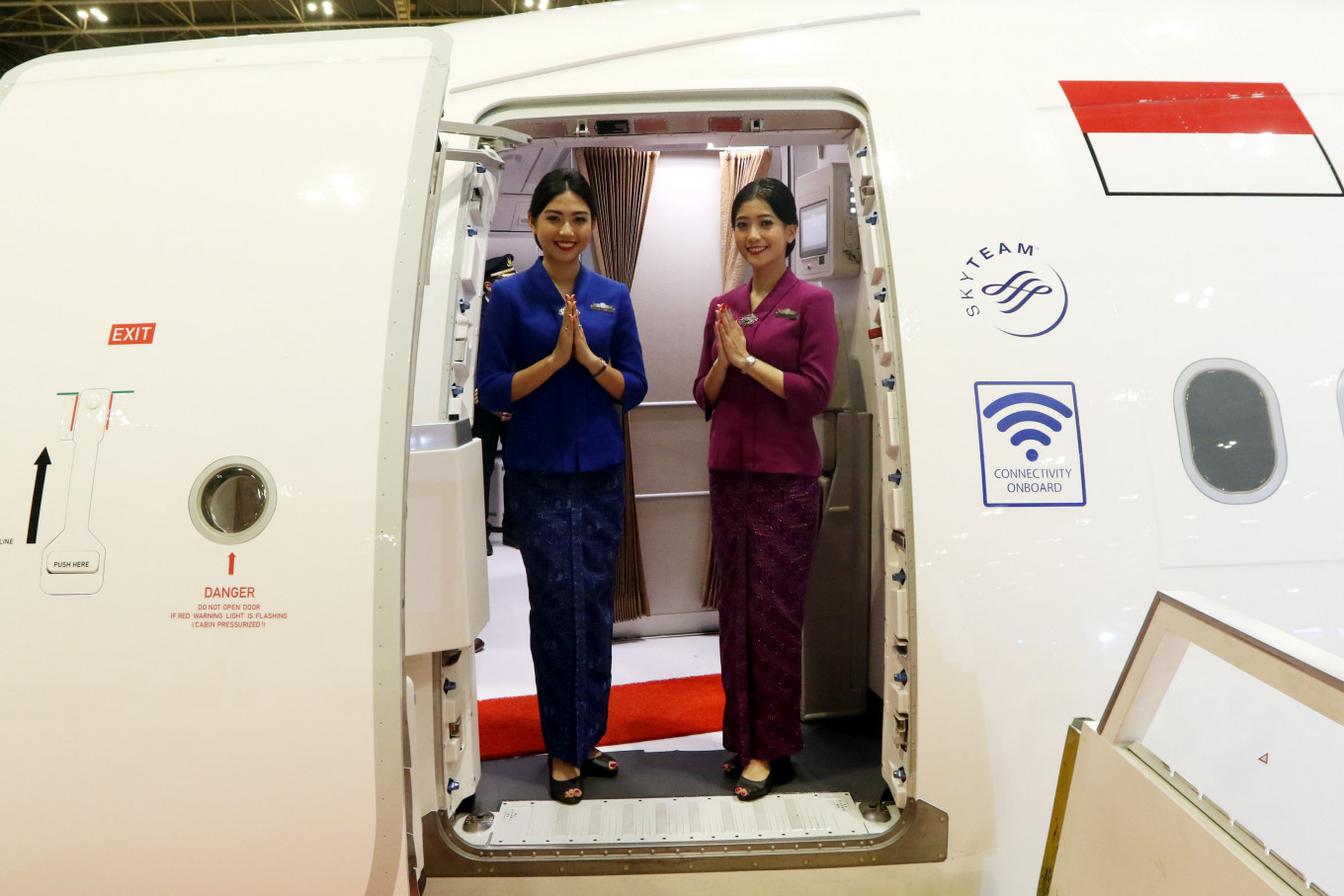
Garuda defers fleet renewal amid COVID-19 pressure on finances
by Mardika ParamaNational flag carrier Garuda Indonesia is not planning to buy any new aircraft this year as the COVID-19 crisis has strained the company’s finances, the airline’s top executive has said.
Garuda president director Irfan Setiaputra told The Jakarta Post in an exclusive interview on Thursday that much of the company’s fleet was still grounded because of falling passenger numbers during the ongoing health crisis.
“What is the world going to say if we have a new aircraft while there are many aircraft parked on the ground? It doesn’t make any sense,” he said during the interview, adding that the airline’s fleet was still relatively new.
“However, nobody knows how things are going to develop next year.”
Garuda Indonesia Group, which includes low-cost carrier Citilink, own 20 aircraft and is leasing 190 aircraft with an average age of 7.8 years, according to the company’s data.
In comparison, US major airlines’ average fleet age was 13.3 years in 2019, data from the US Bureau of Transportation Statistics show.
Moreover, the airline has seen its aircraft productivity fall as its operation have been disrupted by international border closures and social restrictions.
Garuda’s average aircraft utilization rate, which determines fleet productivity, fell to around 4 hours and 19 minutes per day in July, down from 8 hours and 14 minutes a year earlier, according to the company’s monthly operational report.
Garuda Indonesia Group saw a 54.4 percent year-on-year (yoy) drop in passenger numbers to 6.89 million in the first seven months of this year.
The airline suffered a US$712.73 million loss in the first half of this year after booking net profit of $24.11 million in the same period last year.
To further slash the company’s expenditure, Irfan said, Garuda was renegotiating aircraft leasing contracts with lessors.
“When the pandemic hit, we contacted our lessors and renegotiated our leasing schemes, debt restructuration, leasing cost restructuration and [more],” he said during the interview, adding that the renegotiation efforts had shown positive progress.
“Some of the lessors have verbally agreed [to the renegotiated terms]. We only need to write the legal papers and we can execute it once our payment arrears are paid.”
Quoting a Mirae Asset Sekuritas research note published on Wednesday, Garuda revealed that it had managed to defer rental payments for 40 aircraft in the second quarter of this year, leading to a cost reduction of $100 million. Meanwhile, it has also renegotiated prices and tenor with 12 lessors to slash around $30 million off annual bills.
Besides aircraft leasing renegotiation and purchase deferment, Irfan said the company was also proposing early retirement packages for employees to cut expenditure and prevent mass layoffs.
“We keep our early retirement package proposals rolling and, as of today, around 500 employees have applied for the program, even though we haven’t executed it yet,” he said.
Garuda’s operating expenses were down 22 percent yoy at $1.6 billion in the January-to-June period this year.
However, the airline posted negative equity on the year’s second quarter at $80.8 million, compared to its positive equity by the end of 2019 at $720.6 million.
The government has intervened to keep the company afloat by vowing to provide Rp 8.5 trillion ($583 million) in the form of a Mandatory Convert Bond (MCB) for Garuda, which was approved by the House of Representatives (DPR) in July.
The MCB for the airline is expected to have a tenor of three years, with state-owned infrastructure financing company PT Sarana Multi Infrastruktur (SMI) projected to act as a buyer of the bond and eventually a shareholder of the company.
However, during the interview, Irfan said analysts at Garuda projected that the funds would not be enough to turn the company’s financial condition around. It also agreed to repay the MCB funds to the government in the future.
In a research note published on Wednesday, Mirae Asset Sekuritas research analyst Lee Young Jun expected the airline to post losses of $1.1 billion in 2020 and $161.5 million in 2021.
“We think the seat load factor will stay at the level of 40 percent at best until the end of 2020 as new COVID-19 cases are continuously hitting new record highs,” the note reads, adding that the extended large scale-social restrictions (PSBB) would prompt people to avoid traveling.
Shares in Garuda, traded on the IDX with the code GIAA, were up 4.31 percent on Monday at 2.51 p.m. as the main gauge, the Jakarta Composite Index (JCI), also surged by 2.56 percent. The stock has lost 51.41 percent of its value so far this year.